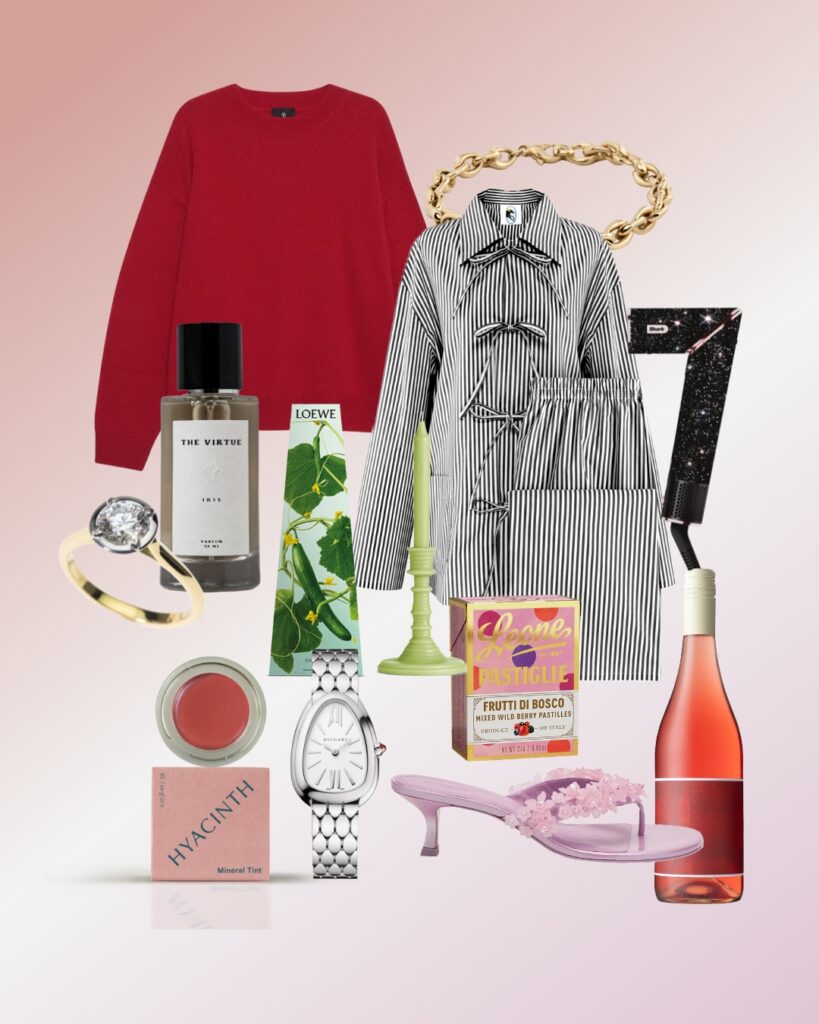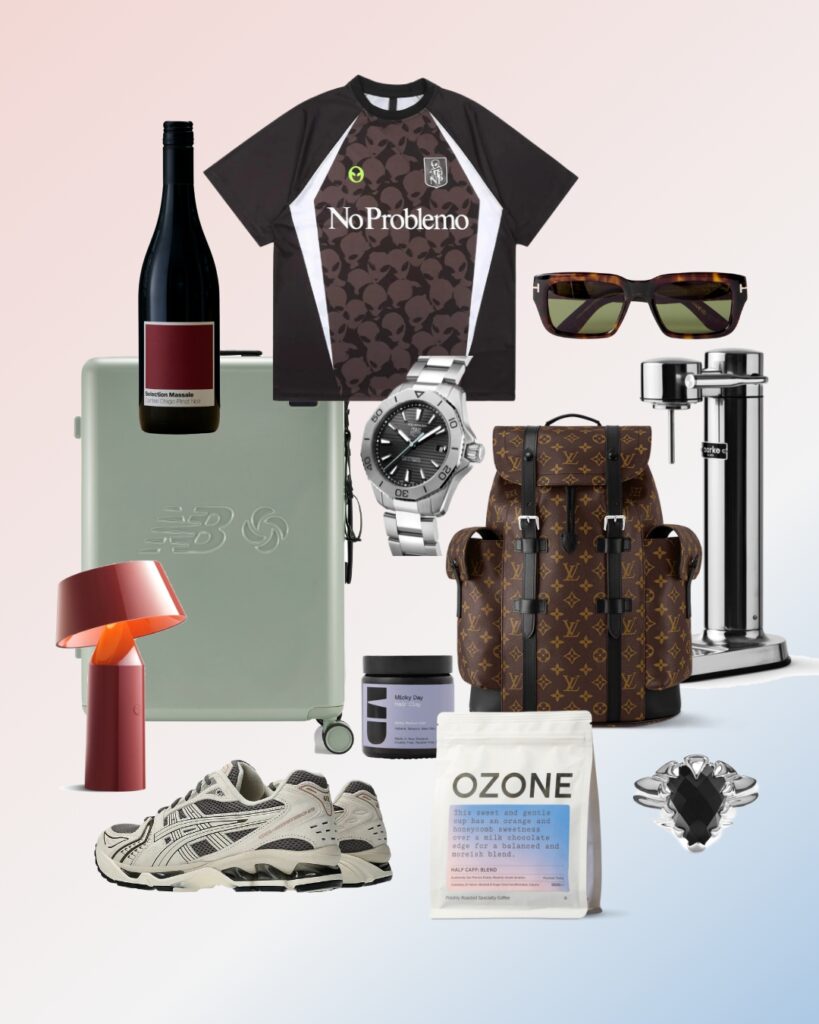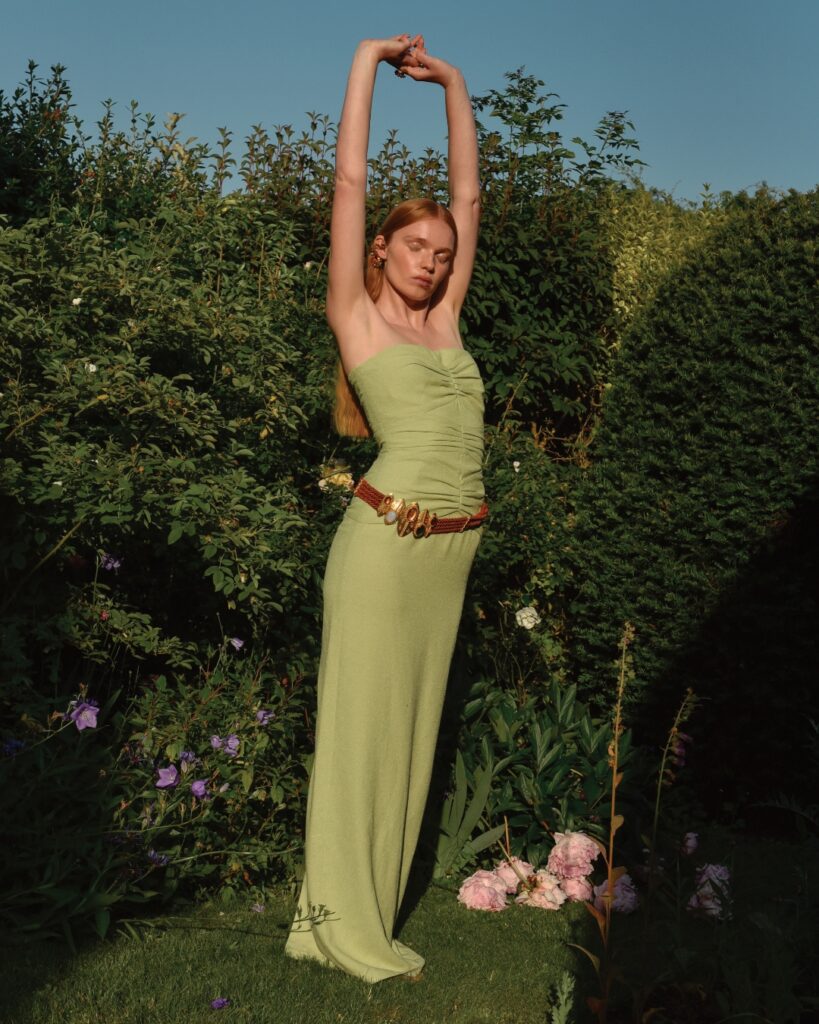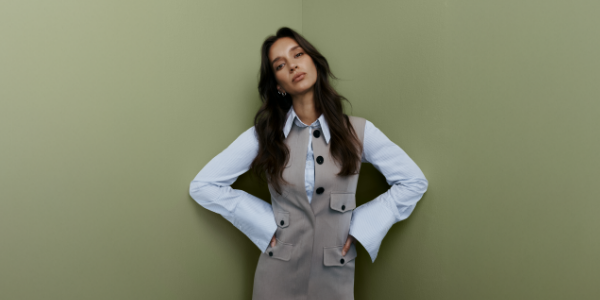
Cruelty-free, vegan and natural beauty products are all the rage, but what’s in a label?
Your lunch breaks are dedicated to trawling health and wellness blogs, bliss balls have replaced chocolate bars as your daily, 3:30pm pick-me-up, and at night, you lie in bed stalking #fitspo Instagrammers until you fall asleep with your phone on your face. Have you ever wondered though, whether your skin – and conscience – would be happier if you opted for beauty products that were as clean as the food you ate? With a new ‘breakthrough’ health study seemingly published every other day, you’d be forgiven for thinking that when it comes to cosmetics, it’s not easy being green. But luckily for you, we’ve done the research and are here to tell you what’s really up with being down-to-earth, beauty-wise.
CRUELTY-FREE COSMETICS
Animal welfare organisation SAFE estimates that more than 115 million animals are used in laboratory experiments every year – those poor bunnies!
A cruelty-free cosmetics breakthrough occurred when the New Zealand government announced a ban on cosmetics testing on animals as part of its 2015 reforms to the Animal Welfare Act.
The bad news is that 90% of cosmetics products sold here are made overseas, and therefore don’t come under this legislation. Even worse, animal testing is compulsory in China, so any company that sells goods there cannot be cruelty-free certified.
One Australian-owned skincare company that won’t sell in China for this very reason is Ultraceuticals, which became cruelty-free certified in 2014. Ultraceuticals Global Skin Educator Tracey Beeby explains that the certification process took about 18 months, “because each individual ingredient that we use needs to be checked to ensure it isn’t tested on animals. It’s not just the final formulation itself that we care about.”
Another expert who’s strongly against animal testing is Karen Murrell, founder of Karen Murrell Natural Lipstick. “I believe cosmetics were created for humans only,” she says, “so I test my lipsticks on myself, my staff and my friends. Testing on animals is an archaic method and has no benefit at all. Products need to be tested on end wearers. End of story.”

1. The Body Shop Down To Earth Palette, $64.95. 2. Collection Cosmetics Contour Kit, $21.99. 3. theBalm Mary-Lou Manizer, $56.99. 4. Karen Murrell lipstick in Rymba Rhythm, $30. 5. Ultraceuticals Ultra Clear Purifying Mask, $79. 6. Collection Cosmetics Divine Lash Mascara in Ultra Black, $19.99
Cruelty-free certification is voluntary, so if you’re ever confused about who the cruelty-free cosmetics companies are, check out crueltyfreekitty.com – a Miss FQ-approved “no-bullshit resource for animal-lovers”.
VEGAN-FRIENDLY COSMETICS
From faux-fur to tofurkey, vegan products have long been prevalent in fashion and food, but veganism is a growing trend in beauty too. As well as not being tested on animals, vegan-friendly cosmetics mustn’t contain any animal products or animal by-products.
These are the ingredients you’ll want to look out for and avoid:
Gelatine: An animal protein sourced from collagen in animal bones and ligaments.
Carmine: A red pigment used in makeup, derived from parasitic insects native to Mexico and South America.
Beeswax: A natural wax produced by honey bees. It helps to keep the oil and liquid components of a product from separating.
Lanolin: Oil that naturally occurs with sheep’s wool. Regularly used in skincare products, as it helps the skin to retain its natural moisture.

1. Pureology Hydrate Cleansing Conditioner, $43. 2. Australis Velourlips Matte Lip Cream in Buda-pash, $17.50. 3. Batiste Heavenly Volume Dry Shampoo, $12.99. 4. Designer Brands Cushion Foundation Compact, $24.99. 5. Lush Angels On Bare Skin Cleanser, $18.90. 6. Mellow Cosmetics Creamy Matte Lipstick in Candy Floss, $18.10. 7. Designer Brands lipstick in Nude Rose, $10.99.
NATURAL BEAUTY PRODUCTS
If you’ve ever asked a makeup artist to make you look ‘natural’, you’ll know that this doesn’t automatically mean spending less time in the makeup chair. If anything, a low-maintenance look can take longer to create than a total cake-face – ‘no-makeup makeup’ is an illusion, after all.
Unfortunately, the same can be said of many beauty products claiming to be ‘natural’. This is because there are no strict regulations about using this term.
Although this means that few companies that list their goods as ‘natural’ have official certification to do so, there are many internationally recognised organisations whose labels do let us know who’s legit…
BioGro: Their logo is a guarantee that a product has been “made without animal testing, genetic modification and the routine use of synthetic pesticides”. BioGro state that 95% of natural ingredients in a cosmetic product must come from certified organic production for the product to be certified organic.
Ecocert: An internationally recognised organisation with arguably the strictest standards for organic labelling.
Leaping Bunny: An internationally recognised organisation that carries out regular, independent audits to verify brands’ cruelty-free claims.
NATRUE: An international organisation that certifies cosmetics as natural. In New Zealand, BioGro are accredited to certify on their behalf.
PETA: People for the Ethical Treatment of Animals is an American animal rights organisation.

1. Hempme Certified Organic Face Cream, $40. 2. Essano Certified Organic Rosehip Oil with Acai Berry, $19.99. 3. Goodness Certified Organic Chia Seed Oil, $23.99. 4. Essano Certified Organic Rosehip Oil with Acai Berry, $19.99 (same as 2). 5. Trilogy Make-Up Be Gone Cleansing Balm with Organic Cotton Cloth, $39.99. 6. Atzen Protect Sun Shield SPF50+, $149
NO PARABENS
It’s widely thought that the trickier an ingredient is to say and spell, the worse it is for you, and experts tend to agree that this is especially true of the parabens in our cosmetics. But WTF are they, actually?
“Parabens are man-made preservative chemicals that are widely used in the hair and cosmetic industries,” says Greg Murrell, owner of Auckland salon Ryder, and ambassador for haircare brand Davines, which strives to provide paraben-free, cruelty-free and sulphate-free hair products. “They are thought to interfere with the function of the endocrine system in our bodies, affecting glandular activity and hormone production.”
If you are scratching your head as to what this means for you, consider the research of Dr Philippa Darbre, who leads a team specialising in breast cancer research at the University of Reading. In 2012, Darbre’s team published a game-changing study that showed 99% of 40 breast tissue samples tested were found to have the presence of at least one paraben, and 60% of the samples featured five. “These results are of concern because parabens have been shown to mimic the action of the female hormone oestrogen, and oestrogen can drive the growth of human breast tumours,” she said.
Although it cannot be said conclusively that parabens cause breast cancer, these findings have confirmed the need for further investigation. In the meantime, we’ll be erring on the side of caution and jumping on board with brands like Goodness which promise to leave parabens and other alleged nasties in the dust.
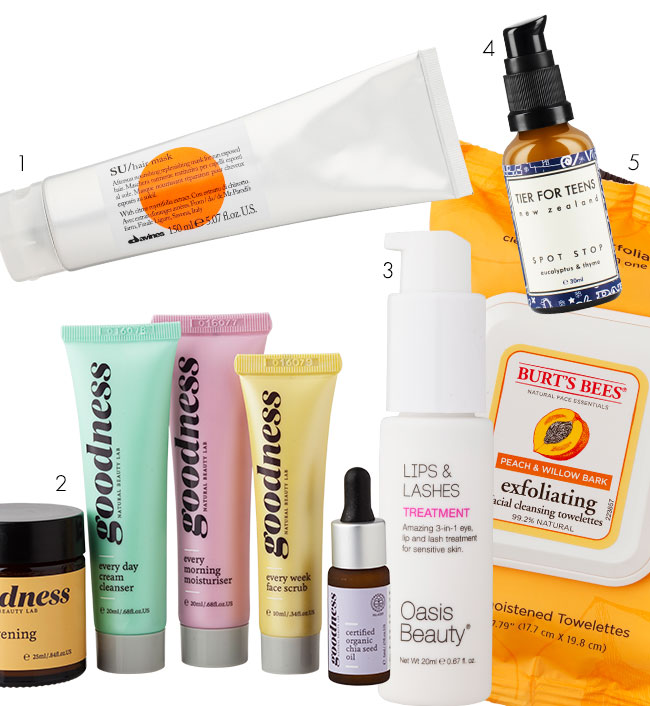
1. Davines SU Hair Mask, $37. 2. Goodness Grab & Go Try-Me Kit, $24.99. 3. Oasis Beauty Lips & Lashes Treatment, $39.90. 4. Tier for Teens Spot Stop, $22. 5. Burt’s Bees Exfoliating Facial Cleansing Towelettes, $29.95.
Words: Skye Ross
This article originally appeared in Miss FQ Summer 2016.


